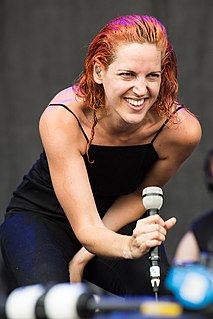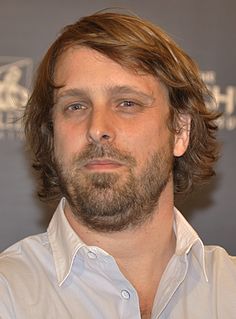A Quote by Lizzy Plapinger
I think if you don't be proactive about how you want your music to be visually represented, I think other people will do it for you.
Related Quotes
I was never pop-music taken seriously when I was taught. But some people who agree with you will like your music, and some who don't agree with you will like your music. I think that if you can approach things in a universal fashion and speak rationally about things, then most people do have similar intrinsic values. They don't - or at least they feel that they shouldn't - want other people to suffer. They want a good life for them and their own.
Treat your career like a bad boyfriend...
Your career wont take care of you. It won't call you back or introduce you to its parents. Your career will openly flirt with other people while you are around... You have to care about your work, but not about the result. You have to care about how good you are and how good you feel, but not about how good people think you are or how good people think you look.
People think, for some reason, that I don't care about creativity and art, or helping people. So I would say that the biggest misconception is, when you think about me, when you think about my name, I don't want you to think about design or clothes or music. I want you to think about a person that's just trying to help people.
I follow my instincts and I always think about what movie I would like to see. If I want to see it then I'm guessing that some other people might want to see it as well. I never try to think about what people will love or will like, because when you start to think for other people that's where you lose track of the real motivation.
When you are writing a spoken word poem, the tools you're working with are your voice, your body, how it's going to sound to someone when you're saying it out loud. Which is different from when you're writing it on the page. That toolbox becomes how does this look visually on the page, how does this read among pages, how is this in relation to poems that are before it or after it. I don't think one is better or more successful than the other. You've just gotta think about "what are the tools I'm using, and how are they most effective in this form?"
To spend any time with someone who is among the top five film composers of the last 50 years is pure gold dust. I mean, not necessarily stylistically, because everyone is different in what their music sounds like, but the approach and how to look at a film, how to think about a film, how to decide what you want to do, how to think about characters, how to think about art, how to think about narrative, how to liaise with producers, how to liaise with directors.































